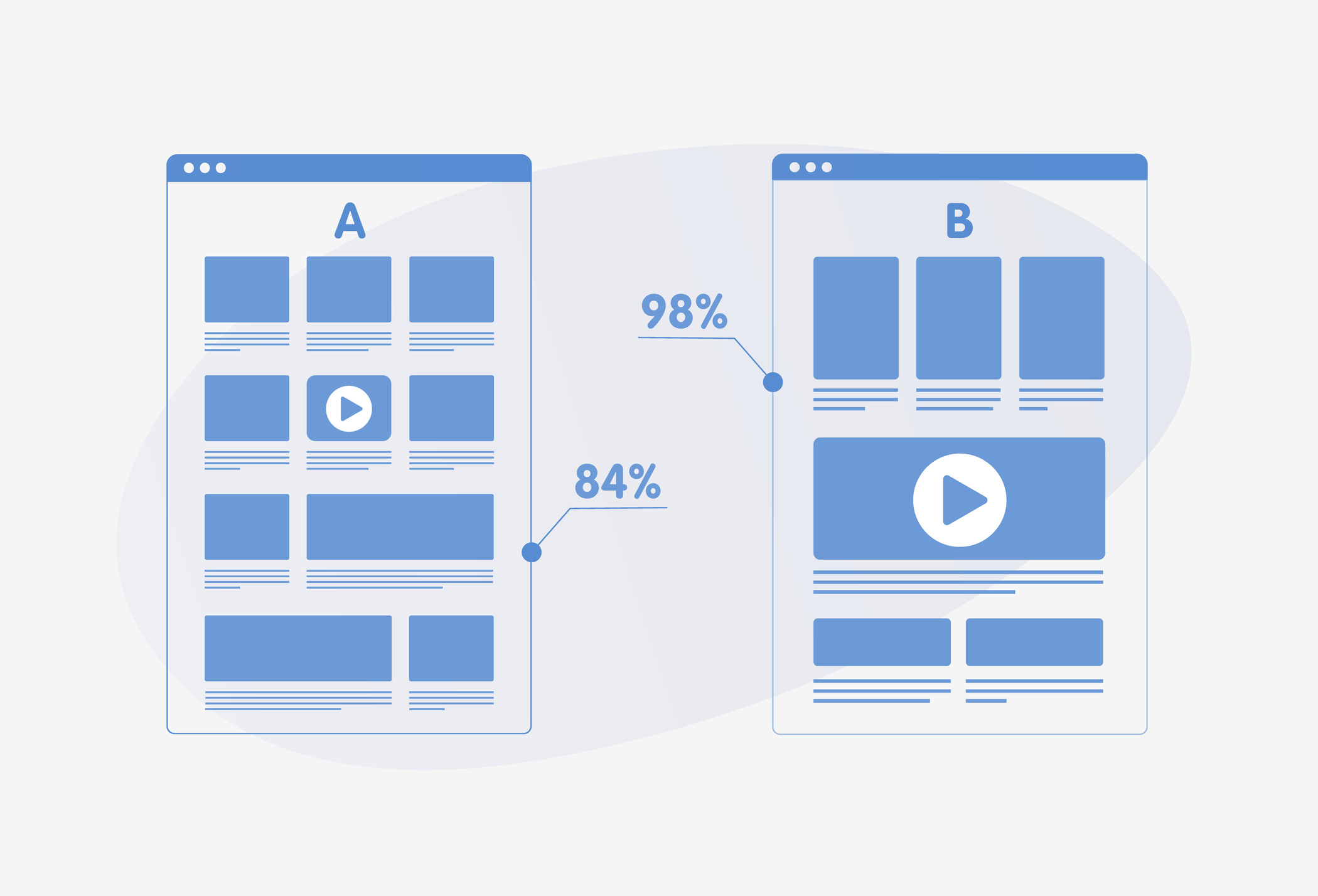

J&C Blog
Find all the latest marketing trends on the J&C Blog.

Find all the latest marketing trends on the J&C Blog.
Direct marketing has long relied on the art and science of testing to fine-tune campaigns, engage customers, and drive results.
Although over the last few years, there’s been a noticeable shift in the industry, with some direct marketers seemingly testing less than ever before. We did an informal survey and it seems several factors are behind this anomaly. (NOTE: Still testing, just not as much as before).
We Use Best Practices
One reason for the drop in testing these days is good old fashion hubris – call it, the assumption of best practices. In other words, “we know what we’re doing.” Over time, certain strategies and tactics have become established as industry standards. Direct marketers seem to rely on these tried-and-true methods, assuming that what worked in the past will continue to work now and in the future.
Today consumer preferences and behavior can change on a dime
We’re not knocking best practices, here, let’s be clear. They can and should provide a solid foundation for any campaign -- but they are also no substitute for testing. Because, as you know, today consumer preferences and behavior can change on a dime. And what worked last year may not have a chance today. Relying solely on assumptions can lead to missed opportunities and a chances to innovate and improve on your current campaigns.
Budget ConstraintsBudget constraints are another big reason test cells are being cut. Many companies are under pressure to optimize their budgets and reduce costs – or, say it with me… “do more with less.” Unfortunately, that means testing just becomes an additional expense. Plus it usually requires additional resources for designing experiments, data analysis, production and postage -- and potentially even campaign adjustments based on the results.
to optimize their budgets and reduce costs – or, say it with me… “do more with less.” Unfortunately, that means testing just becomes an additional expense. Plus it usually requires additional resources for designing experiments, data analysis, production and postage -- and potentially even campaign adjustments based on the results.
This budget-conscious approach can discourage marketers from investing in testing, even though it has the potential to provide long-term cost savings by identifying more effective strategies or reducing wasted resources on underperforming campaigns.
Short-Term FocusIn today's “what have you done for me lately” business environment, there is often a strong emphasis on short-term wins. The bean counters want to see immediate ROMI. So direct marketers who like their jobs may prioritize quick wins over long-term testing and optimization. But this myopic approach can short-change testing because the benefits may not be immediately apparent.
 That’s why it's important to recognize that the cumulative impact of ongoing testing and optimization can lead to measurable success down the road. Perhaps the balance we should strive for is between those immediate short-term goals and the long-term optimization — and, of course, include testing in both.
That’s why it's important to recognize that the cumulative impact of ongoing testing and optimization can lead to measurable success down the road. Perhaps the balance we should strive for is between those immediate short-term goals and the long-term optimization — and, of course, include testing in both.
The digital age has dropped an obscene amount of data on marketers everywhere. They are inundated with so much data from customer interactions, website analytics, social media metrics, and more. Managing and analyzing all this data can be daunting. So much so that some marketers tend to shy away from collecting even more data via their testing.
One way to address this conundrum is to invest in a good data quality analytics tool and talented people who can make sense of the data and pull out the stories it tells. While managing data can be complex, it is a critical component of your decision-making and the launch pad for successful future tests.
Fear of FailureTesting is risky. Not all experiments yield positive results. Some marketers may fear failure and the potential negative impact it could have on their careers or organizations. This fear can lead to an overly conservative approach, where testing is limited or avoided altogether.
approach, where testing is limited or avoided altogether.
But remember, you can often learn as much from a losing campaign as you can from a winner.
So it's essential to shift our perspective on failure. In reality, it’s truly an opportunity for learning and growth..
Where Do We Go From Here?
There are likely more reasons for the recent decline in testing than we’ve outlined here. But the big takeaway is this: in direct marketing, it’s crucial for marketers to see the long-term value of testing in today’s rapidly changing landscape. Testing shouldn’t be seen simply as an added expense, but rather as a strategic investment that can reveal new opportunities, improve existing campaigns, and drive long-term success.
It is crucial for marketers to see the long-term value of testing in today’s rapidly changing landscape
Once we get past our tendency to go with what’s worked before, address budget constraints, balance our short-term and long-term goals, manage data more effectively, and embrace failure as a learning experience, that’s when we can really improve our testing efforts, be more competitive and stay top of mind with customers and prospects.
Testing is not a good idea from the past. It’s an important tool that is as relevant and indispensable today as it ever was.
What About Automation?
Yes, there are some terrific programmatic marketing companies out there who do a fine job of not only "automating" your campaign, but also setting up trigger events and split testing.
What you should know is that there are some drawbacks, including the cost, the complexity of setup, the creative limitations, and privacy and compliance concerns. Plus you relinquish some of the overall control of your campaign once you hit the "Go" button.
Nothing against this route if that's the one you choose to take. Just know what you're getting into.
How To Get Started
Are you looking to improve the content in your next campaign? Run a test? Or maybe you’re looking to increase the performance of a program you’re already running. Well, J&C has over 40 years of experience and would be happy to learn more about your company and your goals. Contact J&C today. That way, we can give you an honest assessment of how we can work with you to achieve better results.
Topics: Direct Marketing, Direct Mail, Creative
303 E Wacker Drive, Suite 2030
Chicago, IL 60601
Phone: 312-894-3000
Fax: 312-894-3005